#in der strafkolonie
Explore tagged Tumblr posts
Text
kafka's literary works in the kafka series
die verwandlung / the metamorphosis
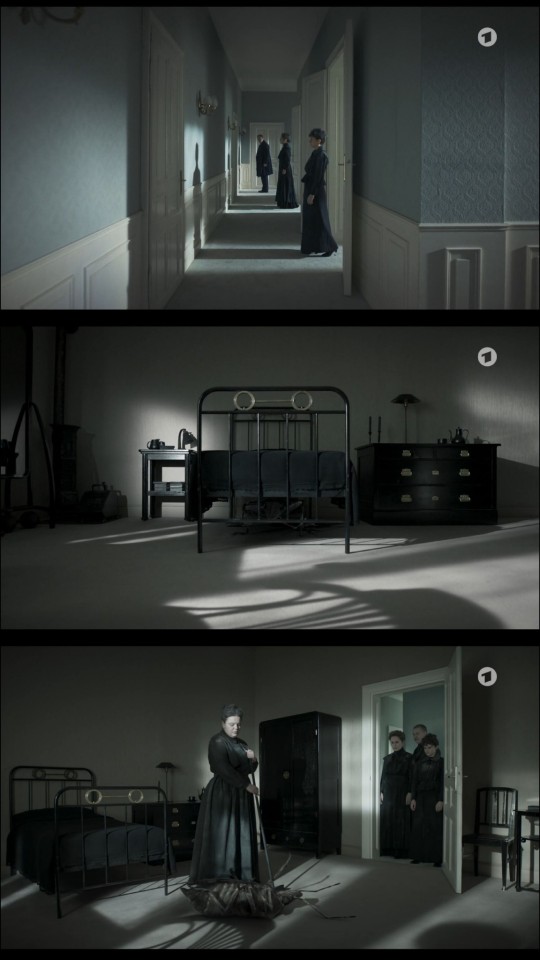
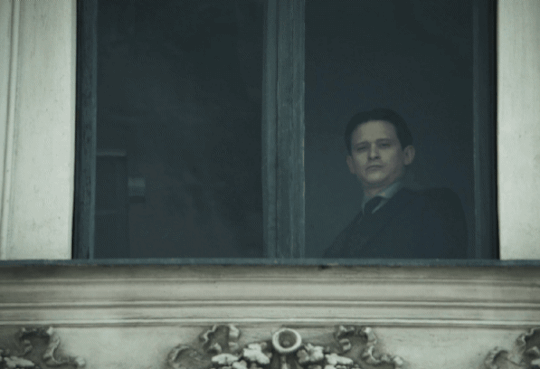
der prozess / the trial
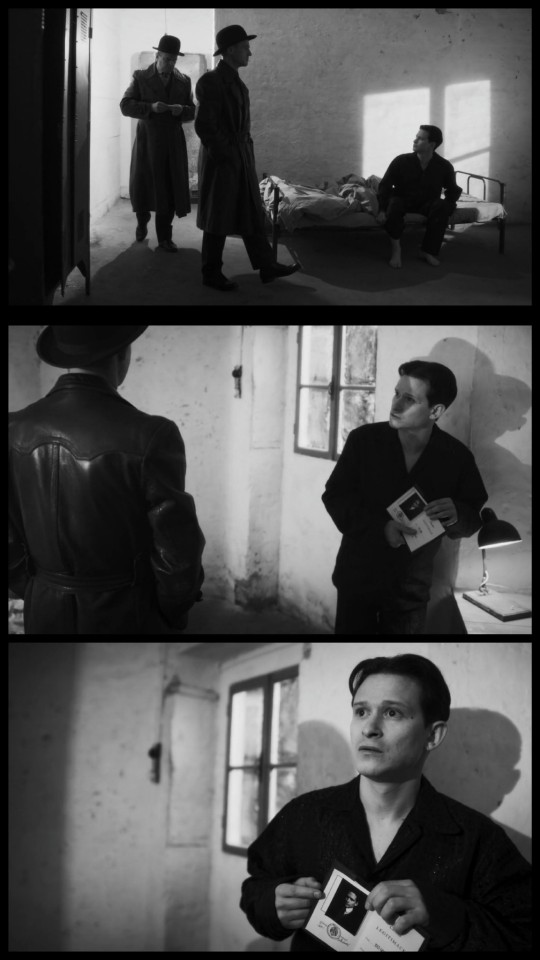
das urteil / the judgement
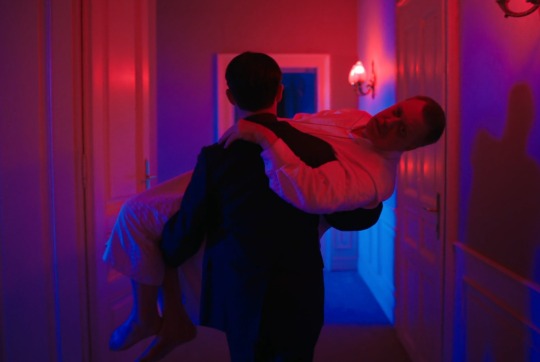

das schloss / the castle

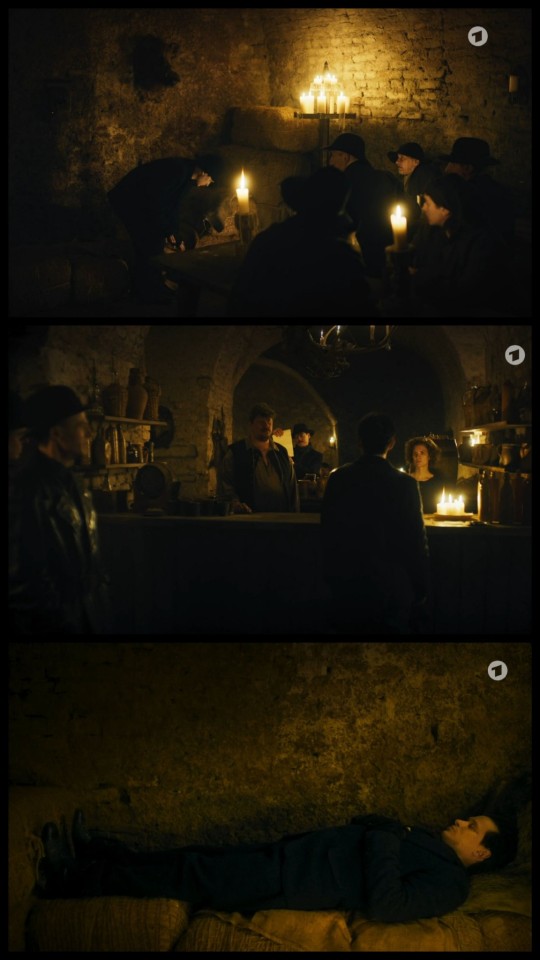
in der strafkolonie / in the penal colony

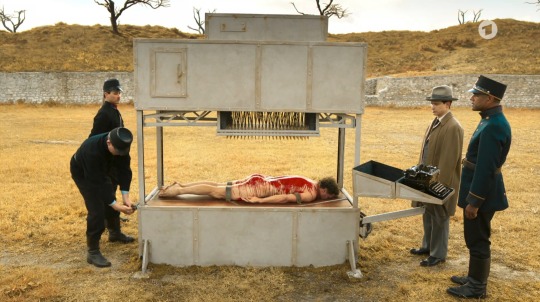
#franz kafka#kafka#kafka series#kafka serie#kafka 2024#die verwandlung#the metamorphosis#der prozess#the trial#das urteil#the judgement#das schloss#the castle#in der strafkolonie#in the penal colony#1920s#kafka movie#movies#gifs#aesthetic
50 notes
·
View notes
Text

"In the Penal Colony" is available to read here
*Originally published in German under the title "In der Strafkolonie", sometimes translated as "In the Penal Settlement"
#short story#short stories#in the penal colony#in the penal settlement#in der strafkolonie#franz kafka#20th century lit#german language lit#translated lit#jewish lit#czech lit#czech jewish lit#have you read this short fiction?#book polls#completed polls#links to text
5 notes
·
View notes
Text
The Amazing Digital Time Capsule!
The Au is Currently in the works, but I have plans and will constantly be expanding it!
The blog is run by @mangotangerinepastry I will take questions and post things there as well. This blog was made mostly so I can just organize my ideas better.
Synopsis
"Every period of time holds value! no matter what its current situation. Why lose the culture from any period, visit and contribute to the ever growing collection human history with our Digital Time Capsule!"
Unfortunately leaving was not apart of the deal...
New Designs (in progress)


The current contributors of the capsule are (Outdated new designs and cards coming)








Content
Official comic
TADTC #1
TADTC #2
Canon fics
The Anniversary Ball ( @thescarletnargacuga )
Bullseye ( @thescarletnargacuga )
Unforgiving Drinks
In Der Strafkolonie
Official Lore
Caines habit
Ragatha and the Kids
The Aftermath
Abstraction
Caine through the years
The Adults
Lore Dump #1
Lore Dump#2
The First Real Conversation
Lore Asks
Swearing | How the AI stays in Control of Leaders | Pomni and Caine Duet? | Wing Man Gangle | Life for Caine in the 20s | The Adults | Why Caine loves Pomni | Relationships, Showtime?|
Side events
The Piano (ShowTime Comic)
Sleep deprived concept art
Showtime kiss (non canon)
Yeehaw (showtime comic)
HD (non canon...kinda)
!RULES!
Roleplay Asks?
I'm not a roleplay account! I just tell the story, so please don't send roleplay related asks. Basically just don't ask characters things directly, they will not respond. If you do send an ask that addresses a character I might ( under the right circumstances) still answer it but the character will not. I love interacting with you guys and answering questions but I do not feel comfortable doing roleplay or pretending to be a character. I simply act as a narrator.
Outside Content
Asks and Fanart, if anyone wants to, are welcome! So are fanfics and comic dubing. Please Tag Me if you make art (I want to see it)! Unless it's NSFW, I really would not like anyone making NSFW content with my au, but if you still feel inclined to make it, just don't tag me. I don't want to see NSFW.
The only Canonical ship is showtime, take with that what you will.
#The Amazing Digital Time Capsule#TADTC#the amazing digital circus ragatha#the amazing digital circus#the digital circus#caine the amazing digital circus#pomni#tadc fanart#caine tadc#the amazing digital circus fanart#pomni the amazing digital circus#tadc pomni#caine#jax the amazing digital circus#tadc au#the amazing digital circus au#tadc art#tadc kinger#the amazing digital circus kinger#tadc gangle
200 notes
·
View notes
Text


I still remember my first time reading Kafka. I remember crying on the bus and feeling all that bitterness devastate me. It took me a while to get back to Kafka, but I'm starting to read In der Strafkolonie, still not knowing if I'm anxious or preparing for the storm.
#studyblr#mine#study#study blog#inspiration#book#studyblr brasileiro#brazilian studyblr#aesthetic#books#bookblr#books & libraries#booklr#franz kafka#drawing#draw#dark academia#brown academia#academia aesthetic
26 notes
·
View notes
Text

Ian Flannery
“There is only one way to fight, and that’s dirty. Clean gentlemanly fighting will get you nowhere but dead, and fast. Take every cheap shot, every low blow, absolutely kick people when they’re down, and maybe you’ll be the one who walks away.” ― Jeaniene Frost, Halfway to the Grave
Aus der Londoner Unterschicht des 18. Jahrhunderts stammend wurde er im Alter von Anfang zwanzig in die Strafkolonie von Neusüdwales verschifft. Im Jahre 1789 floh er aus dieser und bereitete seiner menschlichen Existenz ein Ende, indem er sich in Gesellschaft von Vampiren brachte, um schließlich einer der Ihrigen zu werden. Über die Jahrhunderte hinweg badete er seine Hände nicht selten in Blut, welches bis in die Gegenwart an jenen haften blieb und stets erneuert wird.
Ehemaliger Blog: ianflannery.tumblr.com
0 notes
Text
Es ist noch gar nicht so lange her, dass die Theaterregisseurin Jewgenija Berkowitsch und die Dramaturgin Swetlana Petrijtschuk vom Publikum und Kritikern in Russland gefeiert wurden. Vor zwei Jahren wurde den beiden Frauen gleich zweifach die Goldene Maske verliehen. Die Auszeichnung gilt als der wichtigste russische Theaterpreis. Den hatten sie für Ihr Stück "Finist, der lichte Falke" bekommen.
In dem Stück geht es um zwei Frauen, die im Netz IS-Kämpfern kennenlernen und sich in diese verlieben. Sie lassen sich vom "Islamischen Staat" rekrutieren und fliegen daraufhin nach Syrien. Die Geschichte basiert auf realen Geschehnissen und Gerichtsprotokollen.
Am Montagabend wurden beide zu sechs Jahren Haft in einer Strafkolonie verurteilt. Außerdem wird Berkowitsch und Petrijtschuk drei Jahre lang der Internetzugang verboten. Das Gericht befand sie der Rechtfertigung von Terrorismus für schuldig.
Während des Prozesses hatten die beiden angeklagten Frauen gesagt, sie verstünden die Anklage nicht, sei doch gerade ihr Stück eine Warnung vor Terrorismus.
[...]
[...] Staatsanwältin Jekaterina Denisowa hatte während des Prozesses eine Verschwörung gewittert. In verbrecherischer Absicht hätten Berkowitsch und Petrijtschuk geplant, ihr Stück auf möglichst vielen Bühnen zu spielen. Die beiden Künstlerinnen stellten somit eine Gefahr für die Gesellschaft dar.
Die Anwältin der beiden Frauen, Xenia Karpinskaja, bezeichnete die Sitzung des Gerichts als "absolut gesetzwidrig und ungerecht". Sie kündigte an, das Urteil anzufechten - "obwohl es kaum Hoffnung gibt".
[...]
0 notes
Text

SCHULD UND VERGEBUNG
"Die Schuld ist immer zweifellos!" heißt es in einer berühmten Passage in Franz Kafkas Erzählung "In der Strafkolonie" - gegen den Strich gelesen liegt darin auch ein Hinweis darauf, wie wir mit unserer eigenen inneren Schuld umgehen ... wo starke Schuld gefühlt wird, ist der Zweifel abwesend. Umgekehrt auf Vergebung hin gedacht bedeutet das: Vergebung (und SelbstVergebung) kann nur da stattfinden wo Zweifel, das heißt andere Perspektiven als nur die der reinen Schuldzuweisung, möglich werden - auch und gerade dann wenn die Schuldzuweisung legitim und gerecht ist. Schuld und Vergebung sind in unser aller Leben ein zentrales Thema, welches wir nur ungern direkt in den Blick nehmen - aber wenn wir wagen, es zu tun, werden wir freier, gelöster, leichter. Deshalb wird dies, inspiriert von Kafkas Werk, eines der Themen der neuen Denken-CoachingGruppe sein - und wir werden gemäß des Titels der Gruppe "Unkonventionelle: Gegen den Strich denken, lesen und leben" mit sehr andersartigen Ansätzen dazu experimentieren als mit den Gewohnten. Sei dabei - nur noch 3 Plätze frei, Beginn nächste Woche. Maximal 6 Teilnehmer. Wöchentliche Zoom-Session von 60 Minuten, alle Sessions auch als Audio-Aufzeichnung, begleitende WhatsApp-Gruppe für Fragen, Feedback und Austausch zwischendurch. Sehr günstiger Tarif. Einfach PN oder eMail an [email protected] schicken für mehr Info!
0 notes
Text
Am 14. Juni 2022 wurde der Oppositionspolitiker Alexej Nawalny in die Hochsicherheits-Strafkolonie in Melechowo in der Region Wladimir verlegt. Die Justizvollzugskolonie Nr. 6, kurz IK-6 genannt, liegt knapp 250 Kilometer östlich von Moskau und ist als Folterkammer gefürchtet.
Sind im Gefängnis Handys erlaubt?
Hier kann jeder Gefangene, sofern er im Besitz einer Telefonkarte ist, unbeschränkt nach außen telefonieren. Eingehende Telefonate für Gefangene werden aus vollzugstechnischen Gründen grundsätzlich nicht durchgestellt bzw. vermittelt. Im offenen Vollzug dürfen Sie grundsätzlich ein Mobiltelefon besitzen und betreiben.
0 notes
Text
Kreml- und Putin-Kritiker Nawalny stirbt nach jahrelanger Haft in Strafkolonie
Tichy:»Er galt als einer der populärsten Oppositionellen von Präsident Wladimir Putin: Alexei Nawalny. Nun ist einer der härtesten Putin-Gegner in einem Straflager mit nur 47 Jahren gestorben. Der russische Friedensnobelpreisträger Dmitri Muratow spricht von einem „Mord“, es sei Absicht, dass die Haftbedingungen zu Nawalnys Ableben geführt hätten. „Sein Tod in einer Strafkolonie erinnert uns an Der Beitrag Kreml- und Putin-Kritiker Nawalny stirbt nach jahrelanger Haft in Strafkolonie erschien zuerst auf Tichys Einblick. http://dlvr.it/T2rQYh «
0 notes
Text
Wem nutzt der Tod von Nawalny?
Am 16. Februar starb der prominente russische Oppositionsführer, Alexej Nawalny, in einer Strafkolonie in Sibirien. Die offizielle Todesursache bleibt vorerst unbestätigt, da die Ermittlungen noch laufen, doch der Westen hat bereits einen Schuldigen im Visier. Gemäß Berichten aus der russischen Strafkolonie verspürte Nawalny während eines Spaziergangs plötzlich Unwohlsein und verlor schnell das…
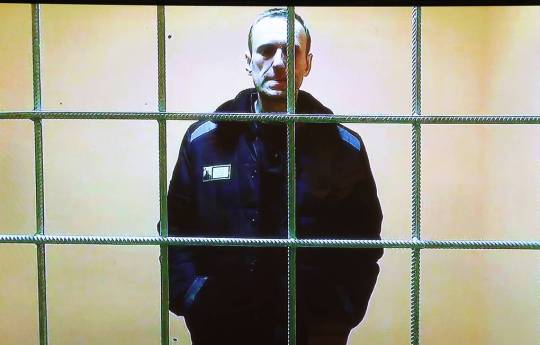
View On WordPress
0 notes
Text
A Country Doctor by Franz Kafka


A Country Doctor A Country Doctor by Franz Kafka is a short story about a doctor who struggles to reach a sick boy on a winter night. Louis H. Leiter writes about A Country Doctor: "A Country Doctor" comments on man, who, buffeted by the scheme of things, is unable to transcend the part assigned him by the absurdity of that existence. Because he does not lack conscious knowledge of his condition, but refuses to act in the face of his portentous freedom, the doctor, an archetype of the anti-existential hero, deserves his fate." Download the book here:

A Country Doctor by Franz Kafka
Franz Kafka's A Country Doctor English Subtitle
Who was Franz Kafka?
Franz Kafka was a German-speaking Bohemian novelist and short-story writer, widely regarded as one of the major figures of 20th-century literature. Born into a middle-class, German-speaking Jewish family in Prague, then part of the Austro-Hungarian Empire, Kafka's unique body of writing—much of which is incomplete and was published posthumously—is considered to be among the most influential in Western literature. His works are characterized by themes of alienation, physical and psychological brutality, characters trapped in an incomprehensible system, and mystical transformations. Kafka's writing blends elements of realism and the fantastic. He often created malevolent, absurd worlds and characters who struggled futilely and had a deep sense of existential angst. Despite the posthumous publication of the majority of his works, Kafka's influence has grown steadily, influencing a vast range of writers, critics, artists, and philosophers during the 20th and 21st centuries. List of Works by Franz Kafka: - Novels: - "The Trial" ("Der Prozess") - "The Castle" ("Das Schloss") - "Amerika" (also known as "The Man Who Disappeared" or "Der Verschollene") - Short Stories: - "The Metamorphosis" ("Die Verwandlung") - "In the Penal Colony" ("In der Strafkolonie") - "A Hunger Artist" ("Ein Hungerkünstler") - "The Judgment" ("Das Urteil") - "A Country Doctor" ("Ein Landarzt") - "The Great Wall of China" ("Beim Bau der Chinesischen Mauer") - "A Report to an Academy" ("Ein Bericht für eine Akademie") - "The Hunter Gracchus" ("Der Jäger Gracchus") - "The Burrow" ("Der Bau") - "Josephine the Singer, or the Mouse Folk" ("Josephine, die Sängerin oder Das Volk der Mäuse") - Letter Collections: - "Letters to Felice" ("Briefe an Felice") - "Letters to Milena" ("Briefe an Milena") - "Letters to Ottla and the Family" ("Briefe an Ottla und die Familie") - Diaries: - "Diaries 1910-1923" ("Tagebücher 1910-1923") This list is not exhaustive, as Kafka wrote numerous other letters, fragments, and shorter pieces. Some of his works were destroyed, either by Kafka himself or by others after his death, so the full extent of his writings is unknown. Read the full article
0 notes
Text
In Der Strafkolonie
A Canon Time Capsule OneShot
!Warning: Graphic descriptions of Death, Death, Gore, Panic Attacks, PTSD, Body Horror, Swearing!
He looked forward gazing at his rugged hands, calluses formed on the tips of his fingers and the knuckle on his index finger. He saw the dried mud coat the skin on his forearms, as well as the dirt under his fingernails that had built up over the last few month’s. David focused on everything in his peripherals not even feeling the blood drip from his nose and fall on the man he was choking out. He squeezed tighter and tighter, watching the blood pool in the man’s eyes. David could feel the man’s hands grasp onto his forearms desperately trying to rid his body of David’s death grip. It didn’t work. As the minutes went by, his neck bruised, turned red, and David witnessed his face pale. He wanted to stop, he was weak and tired, his arms shaking, vison blurring, but he couldn’t let go. This was the enemy.
He woke up to the sickly smell of sulfur. It was another attack. David reached for his mask, but it wasn’t there nor was his gun.
“Fuck!” his heart raced, every heavy breath brought the burning sensation further and further down his throat. The musty smoke-filled air surrounded him. He tore the fabric off the sleeve of his off-white blouse, quicky bumping it in a bucket of water he found beside him, accidently knocking it over in the process. He witnessed his blurred reflection in the spilt water bringing the wet cloth up to his face to cover it.
But he couldn’t. There was no facial tissue on the right side of his face to cover. There was no gas to hide from. His gun and mask weren’t missing; they were returned. There was no battle to fight, not anymore.
David lay in a long-decimated shopping center at the end of Pittsburgh’s strip district. Waste water from the spilt bucket flowed around him. David began to take long deep breaths, slowing his heart rate. He rose to his knees and stared at the shattered night above him, half hidden by the crumbling brick walls around him.
“This isn’t D-day yet…not yet.”
~
David sat beside a tree in the newly built Frick Park. It was the one place in Pittsburgh where he could escape the smell of burning coal and melted steel. His hard rubber fountain pen stroked along the pages creating a disgusting cartoon of which he hated. Political cartoons were the commissions David dreaded the most. He never wanted to create pictures that only produced conflict and promoted hypocrisy. However, the dwindling dollars in his pocket demanded some other source of income, as his day job didn’t produce anything substantial.
*Ding, ding, ding, ding, ding, ding, ding, ding*
David packed up his supplies in the old, barely together leather bag he carried, and made his way to the Twelve Pictures Animation building. He had memorized the way to the building and everything on his path to it, the (recently foreclosed) pawn shop, the billboards, flyers, and newspapers, adds for Alcoa, Create and Advance, and U.S Steel, were a normal part of his daily commute. All companies that resulted in Pittsburgh’s “Steel City” name, and a reminder to him of the reasons why the air burned his already damaged lungs like acid.
Daivd worked for Twelve Pictures Animation as an animator, creating moving pictures for the entertainment of the public. Though he was quite proud of his job, that didn’t prevent him from walking with his head down low, hiding his face from public view. If people only got a quick glance, they wouldn’t even notice the painted copper mask shielding the right side of his face.
The streets were exceptionally crowded this morning. Unexpectedly so for a Wednesday, he almost regretted spending the extra forty minutes walking to the park and back to the Strip District. The crowds were unbearable to him, but he did his best to ignore them.
The horns of the ships sailing the three intersecting rivers rung in David's ears making his head hurt and heart rate rise. He reached in his pocket and pulled out an Identification tag. The circular piece of metal was made of aluminum, its text had almost faded to obscurity over the past ten years with the only remaining words being DAVID. G. GRANT written in all caps on the top. He feverously began to rub the mock medallion between the lengths of his index finger and thumb, the rusty metal chain snaking its way around his fingers as he did so. He couldn’t remember what made him start doing it, only that it happened after he was shipped back home those ten long years ago.
“Mornin’, Dave! Yinz releasing a new picture soon? Those are always the berries to Maria!” shouted a man opposing David on the other side of the street.
“Coming up on one! Just gotta keep the pencil moving and it should be out once she finishes her noodle juice!” David jovially responded, walking backwards to keep his eye contact with Baron. He was an old friend David knew from school, a good guy, always a friendly face for David to see in the morning, and one of the few people David could trust.
He laughed at himself a little as he turned back around, though still mostly keeping his head down. David did love good conversation, looking at new people in the eye was just hard nowadays.
David quickly entered the studio upon his arrival and silently waved to the receptionist as he always did, despite never receiving any acknowledgement from her, and made his way to the animator’s room, passing a couple of the female tracers on his way.
“Good morning, Emilia,” David spoke softly as he slowed his pace when passing her,
Emilia was a small woman with mid length blonde hair that she kept twisted in a small bun, leaving her bangs out and swooped to the side.
“Oh! Hello, David, off to the man cave again?” she giggled, bringing her hand to her mouth. David’s eyes followed her hand to her lips, their maroon color and distinct “cupid's bow” shape made them contrast heavily her with her pale skin. Emilia was a kind, sweet, young woman; she was always up for a good chat.
David came to a stop to keep the conversation going, “Yep, unfortunately.”
He leaned closer to her, “There are other people I’d much prefer to work with in the place,” he whispered so only she could hear.
“Oh, me too! Maybe one day we’ll be able to get what we want,” she whispered back leaning a little closer into him. So close, he could almost feel her breath on the left side of his face.
��One day…” The wonderous thought echoed in his head like a dream.
“Well, I have to go, but talk to you later, lunch perhaps?” David started slowly backing away still facing her as he spoke.
“Yeah, see you in a jiffy, David.”
~
David always had a strange relationship with his work. He enjoyed the projects he helped produce but always had a sense of uselessness. Something always felt like it was missing, his trigger finger always grew anancy. Yet today was different; he was anxious about something else. He planned to ask Emilia if she wanted to go dancing this Friday night, and lunch felt like the perfect time to do so.
He watched as the minutes turned to hours, he could hardly focus, really only contributing to the current project when people started questioning him or asked his opinions, to which he’d give a half-hearted response. He rubbed his ID tag as the clock changed, slowly waiting for the hands to reflect at 1pm. Break time.
David was already ready to leave a minute before the clock, even chimed, but he was able to gather enough patience to wait and leave at the appropriate time.
Once the clock finally finished its last forever feeling minute, David quickly sped walked to Emilia’s normal lunch spot, a small park bench about five minutes out from the studio. It was in the one place where the trees could somewhat hide the almost purely industrial views of the Pittsburgh skyline. Every step made his heartbeat faster. Her laugh bounced in his head, he really thought he had a chance with her. He finally reached her at the bench, but she wasn’t alone. She stood talking to a man in a black suit. He seemed wealthy. His shoes looked like they’d never seen a long walk in their life. David’s heart sank for a moment, but then he started overhearing their conversation. He couldn’t quite understand what they were saying but she seemed aggravated, and his face demonstrated signs of annoyance. David slowly approached the two surveying the scene, until the man grabbed her wrist and pulled her into him against her will.
“You’re mine, Emilia!” the man shouted, his voice empty and cold.
David saw red.
~
David held the shattered copper prosthetic in his hands, blood dripping from the fragile exposed wounds on the right side of his mouth.
Everything was a blur. He remembered grabbing the man by his shirt, pushing him off Emilia, then the punching, the cracking of the metal hiding his face, and their eventual shatter.
He remembered her screams…
“AHHHHHH! What kind of monster are you?!”
He gripped the sharp metal tighter, making his rough hands bleed.
“GET AWAY YOU FREAK!”
He heard her footsteps running away, away from him.
All he did was sit on that park bench, waiting for nothing, not even noticing the rain until it pooled at his feet. In his reflection he saw what they had seen, the melted flesh on the right side of his face, the bright red gums and the stumps of a sawn off jaw, his nose gone, replaced with a black void that enunciated his skeletal appearance. He was a curse to look upon.
He shuttered at his appearance, closing his eyes only to open his mind to the memories of how it came to be. The disgusting yellow wall came through his head the way it had flushed the trench back then, its slightly sweet smell tainted with the odor of decomposing corpses, filled his lungs once again. His breathing grew labored, he swore he could feel its burn once more. The first time he was too busy on the next shot, he didn’t notice the attack was coming, and he couldn’t put his mask on in time. This time he had no excuse.
David closed his eyes and leaned back letting the rain flush his face, desperately trying to get air back in his lungs again.
But the rain only carried him back to the field hospital. A dirty, sorry excuse for a medical center in the middle of a war zone. That day they were all out of Chloroform, so brandy flowed down his throat to numb his senses while the yellow puss filled blisters and dirt covered parts of his face were carved off like a pumpkin in a desperate half-hearted attempt to save the only decent sharpshooter in the trenches. How he’d kill for that brandy to numb the pain he felt now.
He didn’t go back to work that day.
~
In fact, David didn’t go back to work at all…
Dear David G. Grant,
Unfortunately, due to staff complications, we believe you would be better suited to a position at a different studio. We have…
With Best Wishes,
Twelve Frames Animation
The note was hand delivered by Baron, who everyone knew was David’s closest friend at the time and he was one of the few people who knew where David currently resisted. That note now lay at the bottom of the Allegany, because
“Fuck those jagoffs.”
~
The weeks went by, and David searched and searched, but he couldn't find a job. Without his prosthetic, he had no way to hide his deformity and
“No one wants a cripple,” at their company.
His only source of income were his freelance commissions, and even those had grown scarce. All he had were his savings to fall back on and those too were dwindling.
David walked down his normal route trying to stay on some routine. He passed the newspapers, flyers and billboards, and now he actually had time to read them. One in particular peaked his interest.
“Factory workers, Veterans, those with physical handicaps! Are you in need of a helping hand? Create and Advance is currently making the most advanced custom, steel prosthetics! For only $3,000-5,000, get one perfectly tailored to your body, when we’re done, you’ll feel like a new person!”
This is it! David thought. He needed a new mask, an advanced one. Then he could get a job and get back on his feet. The only issue was that price, three thousand dollars at least. David didn’t have that kind of money; nor could he even imagine it.
That night the billboard was all he could think about. The idea of a better future was too appealing to let go. He wanted the life he was promised, the life his parents never believed he could achieve on his own, but he needed some money. He needed it.
~
Baron sat with David. He had invited David over for a drink, knowing the distress of his situation Baron thought he needed it.
“Martha’s out dancing tonight; so, it’s just us. Watcha want? We got scotch, vodka, beer…
“Got any brandy?”
“Sorry, just ran out… we got bourbon, its slightly sweeter and a little stronger, but overall, not too dissimilar,”
“Seems close enough.”
Baron poured and two bourdons and the plain glasses clanked together before they both took a swig. There was mostly silence after that until Baron, two drinks down, broke it.
“You need money?” he asked genuinely, between sips.
“Yeah, but not from you. I can find it myself.” David didn’t look up when talking, focusing on the amber liquid in his glass.
“Now, how’d I know you were going to say that?” Baron replied sarcastically,
“Your pride is going to get you killed. You know that, right?”
“I know… I just I need to do this myself. I just don’t know how.” David leaned over the table staring intently at it.
“…You know that pawn shop that closed recently, had some pretty nice stuff inside. I hear it's all still there.” Baron took a long drink after he spoke.
David’s head turned in surprise and slight disgust,
“You’re not suggesting that I- “
“Oh, come on, Dave! You’re going to die if you don’t get that money. You think you can get a job like this?!” His hand gestured to David’s face, “I doubt you could even get a gig as a pianist hidden behind a curtain!” After that he started looking guilty. Baron pinched his brow and exhaled.
“I’m sorry, I just, I know you won’t take money from me but at least take my advice. If you don’t do something now, you will die. Either through infection or hunger,” there was no humor in his face, no sarcasm in his tone. It was almost chilling to listen to. David sat silent, listening to his friend “just… there’s a crowbar in the shed out back, front right corner, I never go in there, so I won’t notice if it’s gone… just putting that out there.”
The rest of the night was awkward, the only sound came from the bourbon flowing from its bottle.
Eventually the bottle emptied.
“Thank you, Baron. This stuff is good, might have to switch to that ha, ha,” David laughed slightly holding the now empty bottle.
“It was my pleasure. Take care of yourself, soldier.”
David left out the back door.
~
The sky was clear, the lack of clouds allowed the darkness to conceal those who wanted to be hidden.
~
David walked quickly, his head heavy from the alcohol. Muscle memory brought him down his normal route, passing the pawn shop. He stared at the old building. The path to its back door covered in overbrush, yet not impossible to make out.
~
Martha made her way home not too long after David had left, choosing to enter through the back as to not wake the neighbors. After closing the back gate, she noticed something,
“That’s odd?” She stared at the unlocked shed, hesitantly making her way over to check it out, opening it carefully. Yet, she saw nothing out of the ordinary. Except for the front right corner, which seemed strangely empty, like something was missing.
~
David easily tore through the broken locks on the back door of the shop,
“I will only do this once, I promise…”
He opened the doors quietly and entered.
~
Martha walked into the house, grabbed the shed’s key, and went back to lock it before getting ready for bed.
She saw Baron’s head in bed when she walked into their room. So, she was extra quiet when changing and freshening up.
~
The shop of full of expensive antiques, many lined with or made in full of silver or gold, but every time David went to take one, his hand shook. This is wrong… you’re better than this. What are you doing here? This wasn’t the plan. When did you ever actually consider this an option? Even zozzled, he was able to fight the temptation.
~
Martha tucked herself in bed, inching closer to her husband to say goodnight.
~
David turned around to leave yet halfway his eyes met something he’d never seen before, a small rectangular box. It was taped together and somewhat rundown looking. A red circle in its center, glowing.
“What is that?” Davd asked himself before quietly going closer to inspect it.
~
Martha laughed at herself, that wasn’t Baron in bed, it was just a pillow. On it lay a small note…
Just went for a small walk, be home real soon.
~
The pawn shop was quiet, in front stood a man, shrouded by the growing darkness of the night sky. In his hand a crowbar.
“I’m so sorry Dave…”
The man turned around and began walking home.
~
He’s head pounded, what happened? The last thing he remembered was… he didn’t know. He couldn’t remember. Where was he even? The room was nonagonal, painted portraits covered with curtains lined the entirely of the tall walls. He went to stand up, but was almost unable. His head felt like a ton of bricks. He reached to hold it,
“WHAT THE HELL!” his hands grasped the sides what made up his…head? It felt like a large pair of teeth rather than a face.
“HELLO,” Spoke a calm shrill voice,
“Welcome, Caine, to the Amazing digital Time Capsule, my name is BUBLE.”
Caine simply sat there. He failed to listen to BUBLE’s speech. He couldn’t remember what happened, but he couldn’t wipe the feeling of despair off his chest. Instinctively, he stuck his hand in his pocket, and pulled out a small piece of metal. For a second the engraving seemed like gibberish, until five letters appeared, clear and alone
CAINE
“So, I am Caine…”
#the amazing digital time capsule#the amazing digital circus#tadc au#the amazing digital circus au#tadc caine#time capsule caine#caine tadc#tadc time capsule#time capsule au#time capusle#tadc fanfiction#caine#the digital circus#tw alcohol#tw g0re#tw swearing#tw depressing thoughts#tw ptsd#tw violence#tw death
12 notes
·
View notes
Link
Mit: Martin Hecher, Diana Nitzschke, Jens-Paul Wollenberg, Uve Teschner Regie: Thomas Kirsche Technische Realisierung: Thomas Kirsche Bearbeitung: Thomas Kirsche
0 notes
Text
That’s an awesome description. I was never really able to put into actual words what the difference between those two kinds of villains is.
If you allow, I’d love to explore that distinction in relation to the Kafka discourse (sorry, I know this was not at all the subject but I just thought it was super interessting and now I kinda wanna try to put my initial thoughts into text; let’s hope this still makes some kind of sense when I wrote it down).
Since there is no fixed definition of the adjective kafkaesk (kafkaesque) there are a lot of theories on how the term could be defined. Even the different literary discourses have different understandings of the term (I’m arguing from the perspective of German Literature since that’s what I know most about). One of my professors argues that this kafkaesk feeling of “weird, scary, dangerous, helpless” that is displayed is Kafkas books comes from the absence of the highest power instance. For example in “In der Stafkolonie” (In the Penal Colony) the old Commandant who has established and institutionalized the colony’s justice system is absent. But his power lives on in the Officer and the torture and execution device. So my professors hypothesis is that the emotion of kafkaesk is formed by the absence of the highest instance of power while the power of that instance is still very much shaping the characters and the society.
Now - and this is where the above distinction of villains comes in - I’d like to suggest that kafkesk is not only the absence of the highest power instance but as well the lack of recognition and legitimation of the experienced pain.
For example in “Die Verwandlung” (The Metamorphosis) Gregor is in great physical pain as well as emotional pain but we only read about it from Gregors perspective. Neither his family nor outsiders ever mention he’s hurt or even suggest the idea that he could be suffering from the traumatic experience he’s undergoing. He can’t feel half of his body, there is an apple rotting in his wound, he is suddenly unable to commmunicate at all and he barely eats anymore (and of course, he has become a huge insect which also sounds kinda not very fun) but never ones he has his pain acknowledged or even talked about by anyone but him.
Long story short, I’m saving that for later and think about it some more. And definitely research a few things more things about it...
so about writing a villain who is a Hate Sink:
There are villains that are clearly evil and messed up, and there are villains that you loathe and actively want to die painful deaths. Think Voldemort vs. Dolores Umbridge (as much as I don’t really want to cite Harry Potter).
It’s not enough for them to be evil to the core or even a sadist. It’s that on top of two other things:
1) they hold some kind of institutional or personal power over the protagonist or other characters,
2) the world and other characters validate them.
We’re wired to express pain and to have our pain heard and understood by others. When you are hurt, you turn to other people, both for comfort and for validation, acknowledgement that the hurt was hurt. Likewise healing from abuse includes that basic realization that what happened was not okay. Recovery from trauma involves processing the event, and that usually requires getting to the point where you can say, “That shouldn’t have happened to me, and it was wrong.”
Essentially, an abuser is a person who hurts you and then withholds from you that reassurance that you were hurt and the hurt was wrong. Either by making you think that it wasn’t really hurt, or that it was your fault that you were hurt, or that you deserved being hurt. Abusers have power over others, and they use it to hurt. Almost all of us have been under the power of people like that at some point, whether it was a family member, a teacher, a coach, or some other authority figure.
That’s exactly why this type of villain (e.g. Dolores Umbridge) is gut wrenching and hate-inspiring in such a special way. They hit really close to home, for one thing—because in almost every case, the evil and terrible people we have personal experience with were authority figures who abused their power over us and yet weren’t recognized as abusers. In this way they’re much harder to categorize as just pretend, something that only exists within the confines of a book. They’re not just villains, they’re abusers. There is something very real and familiar about their evil.
Not only that, but we respond strongly to the awful, intolerable unfairness of horrible people being given authority and privilege, and having your pain dismissed and ignored. It is, again, a reminder of real life experiences with learning that the world is often unfair. Not only are people cruel, but people will defend cruelty and call it good.
#kafkaesque#franz kafka#in der strafkolonie#in the penal colony#die verwandlung#the metamorphosis#german literature#german literature studies#kafkaesk
217 notes
·
View notes
Photo









Franz Kafka moodboard.
I am nothing but literature and I can and want to be nothing else.
#moodboard#Franz Kafka#Literature#Kafka#Kafka moodboard#metamorphosis#amerika#america#das schloss#the castle#in der strafkolonie#the trial#der prozess#hunger artist#the hunger artist#der hungerkünstler#ein landarzt#books#reading#prague#praha#prag
20 notes
·
View notes
